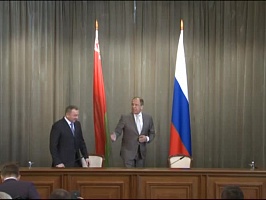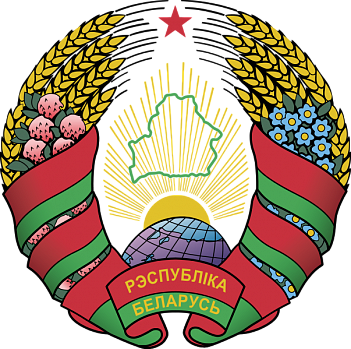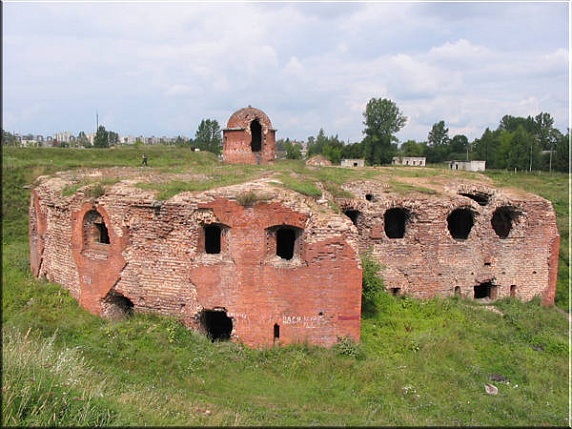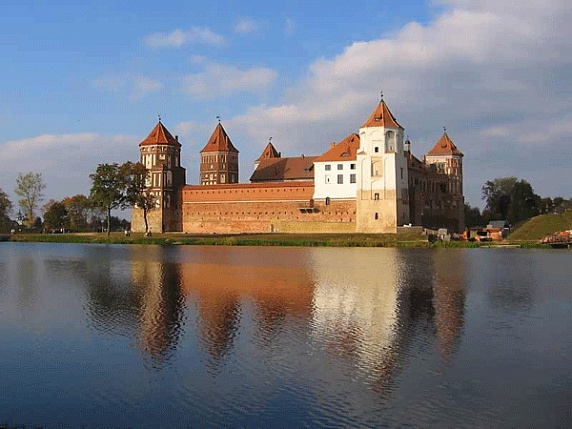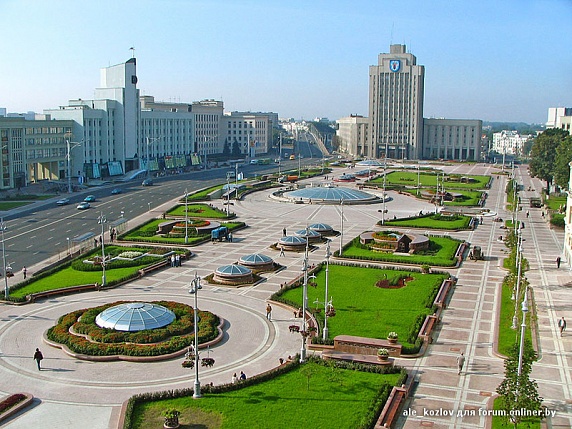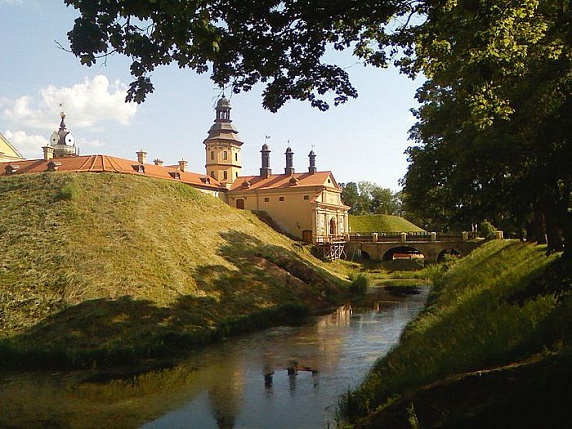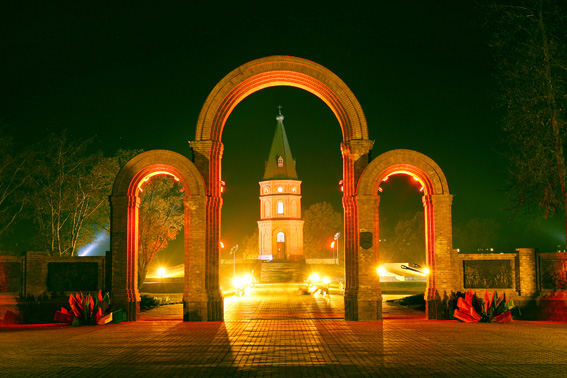 Республика Беларусь
Республика Беларусь
Foreign Minister Sergey Lavrov’s statement and answers to media questions at a joint news conference following talks with Belarusian Foreign Minister Vladimir Makei, Moscow, June 8, 2015
Ladies and gentlemen, our talks have been very substantive. Our contacts are regular and productive. We stressed the importance of preserving the truly allied nature of our relations, which is constantly reinforced by top-level dialogue and fully applies to the work of our foreign ministries. We annually exchange working visits and hold joint meetings of the Russian and Belarusian Foreign Ministry Collegiums.
Today, we noted the significant potential of the Union State in various spheres, including foreign policy. We considered the implementation of the Programme of Coordinated Action in the Foreign Policy Area for 2014-2015. We discussed the progress in drafting a similar programme for 2016-2017.
We considered preparations for the next joint meeting of the Foreign Ministry Collegiums, scheduled for October in Moscow. We analysed the implementation of the agreements that we reached at the previous joint collegium meeting in Minsk in November 2014. In particular, we stated our satisfaction with the implementation of the plan for the promotion of international initiatives devoted to the 70th Anniversary of Victory in the Great Patriotic War, which was adopted at that time. We have consistently stepped up joint efforts to counter attempts to falsify history and revise the results of World War II. Today, we agreed that this work will not end this anniversary year but will continue in the upcoming period.
We highly appraise Minsk’s Presidency of the Eurasian Economic Union. In the context of the recent decisions made at the meeting of the Supreme Eurasian Economic Council on May 8, we are committed to continuing our joint efforts to support Eurasian integration at the foreign policy level. We hope that the EAEU will receive observer status at the 70th session of the UN General Assembly. Together with our Belarusian, Kazakh, Armenian and Kyrgyz friends, we are coordinating the efforts to promote a corresponding draft resolution in the UN.
Today we considered the development of our cooperation within the framework of the CSTO and the CIS.
Naturally, we discussed the situation in Ukraine in detail. We have a unified position, specifically that a key to the resolution of the Ukraine crisis is the comprehensive implementation of the Package of Measures that was approved in Minsk on February 12, 2015 and is based on the premise that there is no alternative to direct dialogue between Kiev, Donetsk and Lugansk. This process should be facilitated by the agreement reached on May 6 at a meeting of the Contact Group in Minsk to establish working subgroups, which are already up and running. On June 2, they held meetings in Minsk and outlined a timetable for further contacts.
Taking advantage of this opportunity, I would like to express our sincere gratitude to our Belarusian friends for their all-round support for the work of the Contact Group, for providing a convenient and traditionally hospitable platform for contacts and ensuring the organisational and technical support for all events. This may not be apparent to all outside observers but we know how important it is to have efficient and consistent support from the organisers of such events.
We reiterated our joint interest in expanding the coordination of actions on the international arena, including at the UN and the OSCE, as well as on matters related to the activity of the Council of Europe and what is known as the Northern Dimension. We exchanged opinions regarding the Eastern Partnership Summit in Riga. Our shared position is that we should make every effort to avoid the creation of new dividing lines in Europe, but, on the contrary, work to erase the remaining ones. We agree that in the interests of the stability and prosperity of the entire European continent, it is important to establish frank, informal dialogue on ways of creating a single economic and humanitarian space from Lisbon to Vladivostok by relying on the principles of equal and undivided security. We also noted that the European Union is beginning to show greater interest in the EAEU’s signals to the EU regarding the establishment of contacts between the two organisations.
On the whole, we are satisfied with the results of the talks, which have again reaffirmed our mutual interest in further deepening the Russian-Belarusian partnership.
Question: Many observers explain Heidi Tagliavini’s resignation as Special Representative of the OSCE Chairperson-in-Office in Ukraine and in the Trilateral Contact Group on the Implementation of the Peace Plan in the East of Ukraine by her dissatisfaction with the implementation of the Minsk agreements. Given the current situation in southeastern Ukraine, can we, in your view, say that the agreements have collapsed and that the situation has reached an impasse?
Sergey Lavrov: I wouldn’t say that Ms Tagliavini’s resignation is related to her dissatisfaction with the prospects for the implementation of the Minsk agreements. Surely she has some personal reasons. She has worked as an intermediary in the most varied areas of European politics for quite a long time.
I wouldn’t say that the process stalled at the June 2 meeting of the working subgroups in Minsk, either. On the contrary, there was a rather substantive, professional discussion. The group on security has laid some positive groundwork, as has the group on political issues. The sides have managed to coordinate certain things in a preliminary manner; certain things have been left until the next round of contacts.
Of course, you can’t expect everything to immediately start running smoothly after a highly confrontational period of mutual recriminations. The talks were useful and laid fairly good groundwork for a number of potential understandings stipulated by the Minsk agreements. It’s another matter that this may not suit everyone, because right after the June 2 meetings of the working groups in Minsk shooting resumed, and Kiev came out with some very loud, aggressive and bellicose rhetoric to the effect that “we won’t talk to Donetsk or Lugansk, nor will we lift the economic blockade until the regime changes in Donbass,” etc. But this directly contradicts the Minsk agreements.
We can see there is a connection with the current G7 summit. They must have wanted to aggravate the situation as much as possible before it started, as they no doubt remember that the G7 said that the anti-Russia sanctions would remain in effect until Russia implemented the Minsk agreements. It’s like an ace in the hole for the Ukrainian authorities: We, Ukrainians, will sabotage the Minsk agreements, but Russia will be the one to suffer, because no one will lift the sanctions. By taking this stand and by linking the sanctions against our country to the implementation of the Minsk agreements by Russia alone, our Western partners have been, in effect, taken hostage by the current Ukraine government.
For this reason, we’ll proceed from the fact that Germany, France and other colleagues in the EU, as well as the US (at any rate, Secretary of State John Kerry in Sochi on May 12) have reassured us that they will work with the Ukrainian authorities, encouraging them to comply with the Minsk agreements in an honest and comprehensive manner. We believe that now this is their duty, while we will in the same way continue to work with Donetsk and Lugansk, encouraging them to continue to work constructively toward the comprehensive implementation of Minsk 2.0.
It is only by these joint efforts, with everyone that influence the parties to the conflict from the outside concentrating on one thing – the implementation of the Minsk agreements – that we can achieve a positive result and resolve the crisis by peaceful means. The alternative, as Kiev periodically reminds us, is a military scenario. We call on our Western colleagues not to allow relapses into violence.
Question: How will Heidi Tagliavini’s departure affect the peaceful settlement in Ukraine in general?
Sergey Lavrov: Of course, they will find a replacement. This is for the OSCE to decide. She’s a Special Representative of the OSCE Chairperson. As far as we know, candidacies are now being considered. When Ms Tagliavini was appointed to this position, even though we’ve known her for quite a while, she came to Moscow and outlined for us her vision of the work that she was supposed to do, and told us about plans to organise it. Of course, we expect that her replacement will also come to Moscow and Kiev and contact Donetsk and Lugansk. Perhaps, the new person won’t be able to ensure a smooth transition, but we hope that Ms Tagliavini will help him or her during the transition period.
Question (to Vladimir Makei): The BRICS and SCO summits will be held in Ufa in July. What are your expectations regarding these events given the status of Belarus as a SCO dialogue partner?
Sergey Lavrov (adds after Mr Makei): One of the documents approved by heads of state during the recent summit between President Putin and President Xi Jinping in Moscow was a statement in which Russia and China called for combining the Eurasian economic integration processes and Beijing’s initiative of the Silk Road Economic Belt. Our EAEU partners support these plans. Moreover, as Mr Makei just mentioned, our Belarusian friends and we see great potential of the SCO in this context. We welcome the active role of the Republic of Belarus in accumulating practical ideas for implementing this large-scale project. Russia actively supports Belarus’ application for an observer status in the SCO.
Question: Previously, the Contact Group meetings in Minsk held full-blown briefings for journalists, whereas now these meetings have become increasingly off-limits to media: they are held behind closed doors and only brief statements are made when they end. Does this mean that efforts to de-escalate the Ukraine conflict are becoming less noticeable?
Sergey Lavrov: I believe it’s the other way round – it’s a good sign. I remember previous contacts in Minsk between the parties to this process. Back then (except the meeting on February 12, when the signed documents were immediately made public), the talks didn’t result in anything meaningful. The participants would take the mike and state their positions, accusing the other side of the absence of any progress.
I take the fact that little information was made available to the media after the meetings of working subgroups on June 2 as a signal that there are achievements in place, and all the parties act responsibly with regard to existing arrangements, and don’t want, if you will, to jinx the process by providing hasty assessments of the negotiations progress. I have reasons to believe that it is so, because, as I said, the security and political settlement groups have outlined mutual agreements that call for additional major approvals. But it’s all in the hands of the participants and is quite feasible.
I hope that the recent provocations around Maryinovka and bellicose statements in the public space will not thwart this process and the working sub- groups will meet as agreed in the near future to continue their work.
